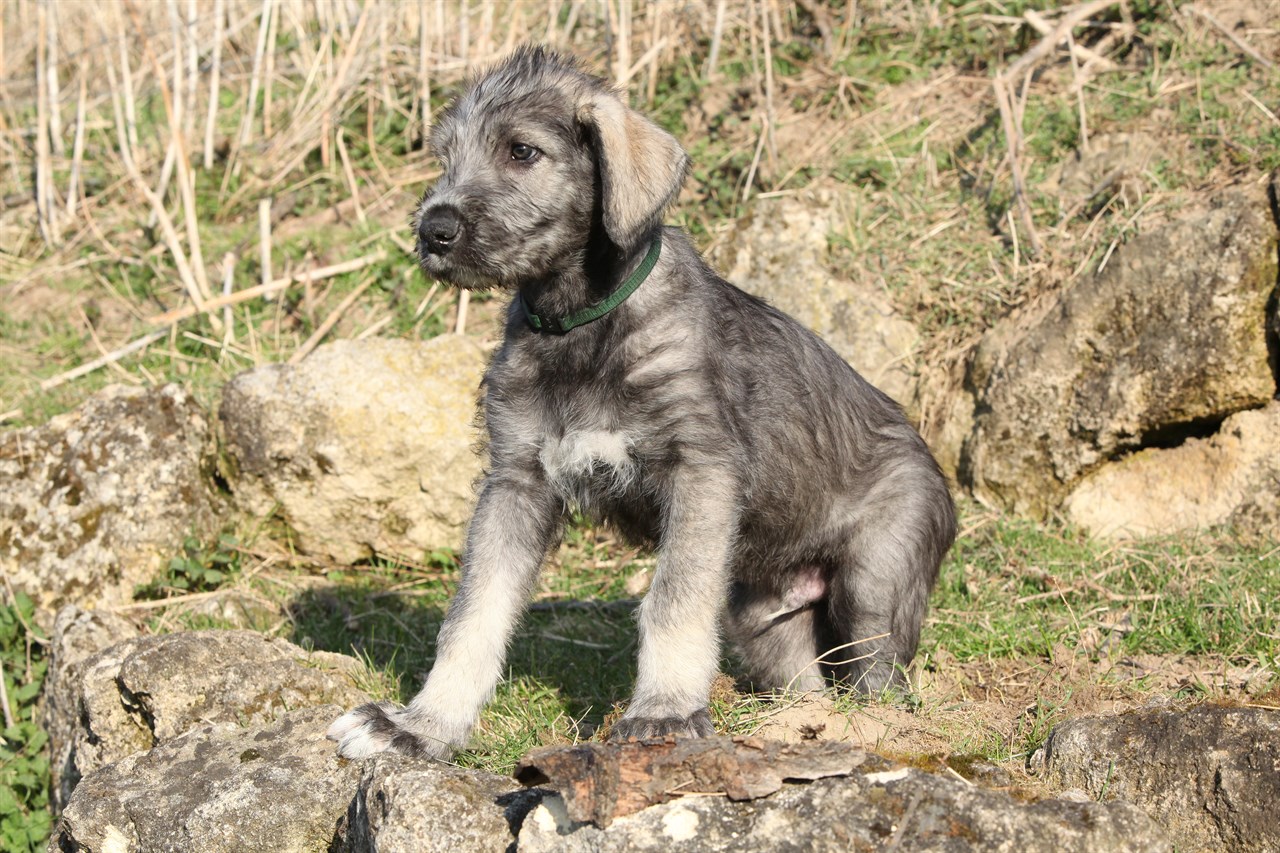Common Health Issues of the Irish Wolfhound

Irish Wolfhounds are generally a healthy breed, but like all dogs, they can be prone to certain genetic and breed-specific health issues. Being aware of these common health concerns and addressing them promptly with proper care and veterinary attention is essential to ensure the well-being of your Irish Wolfhound. Here are some of the common health issues associated with the breed.
Bloat (Gastric Dilatation-Volvulus or GDV)
Bloat is a potentially life-threatening condition in which the dog's stomach fills with gas, causing it to twist. This can lead to a blockage of blood flow and affect various organs. Symptoms include restlessness, abdominal distension, unproductive vomiting, and lethargy. Bloat requires immediate veterinary intervention.
Dilated Cardiomyopathy (DCM)
Irish Wolfhounds are predisposed to DCM, a condition that affects the heart muscle's ability to pump blood effectively. Early signs may include coughing, exercise intolerance, and fainting. Regular cardiac evaluations by a veterinarian can help monitor and manage this condition.
Hip Dysplasia
Hip dysplasia is a hereditary condition where the hip joint doesn't develop correctly, leading to arthritis and pain. Proper breeding practises and maintaining a healthy weight can help reduce the risk. Surgery may be necessary for severe cases.
Osteosarcoma
Irish Wolfhounds are at an increased risk of developing osteosarcoma, a type of bone cancer. Symptoms may include lameness and swelling. Treatment typically involves surgery and, in some cases, chemotherapy.
Von Willebrand's Disease
This is a hereditary bleeding disorder that affects the blood's ability to clot properly. Dogs with Von Willebrand's Disease may experience excessive bleeding from minor injuries or surgeries. Genetic testing can identify carriers, and affected dogs may require special care.
Hypothyroidism
Irish Wolfhounds can be prone to hypothyroidism, a condition in which the thyroid gland does not produce enough hormones. Symptoms may include weight gain, lethargy, and skin issues. Thyroid replacement therapy is the standard treatment.
Osteochondritis Dissecans (OCD)
OCD is a developmental disease that affects the joints, particularly in large breeds like the Irish Wolfhound. It can cause lameness and joint pain. Treatment may involve surgery to remove affected cartilage.
Cancer
Like many larger breeds, Irish Wolfhounds have a higher risk of developing cancer, including bone cancer (osteosarcoma) and other types. Regular check-ups and vigilance for unusual lumps or changes in behaviour are essential.
Elbow Dysplasia
Elbow dysplasia is a developmental condition affecting the elbow joint, causing lameness and discomfort. Treatment may involve surgery or conservative management.'
While these health issues are more common in Irish Wolfhounds, it's important to note that not all dogs of the breed will experience them. Responsible breeding practises and regular veterinary care can help identify and manage these conditions early, ensuring a longer and healthier life for your Irish Wolfhound. Always consult with a veterinarian for guidance on maintaining your dog's health and addressing any specific concerns.
Irish Wolfhound puppies for sale
- Find Irish Wolfhound puppies for sale in ACT
- Find Irish Wolfhound puppies for sale in NSW
- Find Irish Wolfhound puppies for sale in NT
- Find Irish Wolfhound puppies for sale in QLD
- Find Irish Wolfhound puppies for sale in SA
- Find Irish Wolfhound puppies for sale in TAS
- Find Irish Wolfhound puppies for sale in VIC
- Find Irish Wolfhound puppies for sale in WA